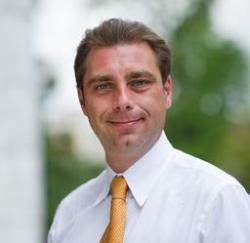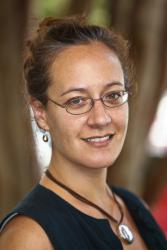The U.N’s climate change conference wrapped up this weekend in Madrid with no significant progress on carbon trading markets or adaptation financing for countries already suffering climate-related damage. Visiting Fellow Bill Burke-White, who was in Madrid, speaks to the disconnect between activists and state party negotiators, the lack of political willingness to make bold new commitments, and what might happen at next year’s conference in Glasgow.
Related material:
- At climate summits, the urgency from the streets must be brought to the negotiating table
- What is the US doing on climate change?
Listen to Brookings podcasts here, on Apple or on Google podcasts, send email feedback to [email protected], and follow us at @policypodcasts on Twitter.
Thanks to audio producer Gaston Reboredo, Chris McKenna, Fred Dews, and Camilo Ramirez for their support.
The Current is part of the Brookings Podcast Network.




Commentary
PodcastWhat happened at the UN climate change summit?
December 16, 2019